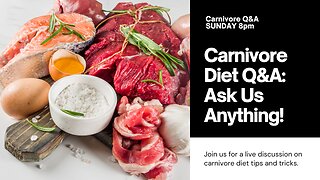Oxalates and More With Sally K Norton
Oxalates are naturally occurring compounds found in many plants and foods. While they are present in small amounts in a variety of foods, they can be especially high in certain vegetables, fruits, nuts, and grains. When consumed in excess, oxalates can be toxic and lead to a variety of health issues.
One of the main concerns with excessive oxalate intake is the formation of kidney stones. Oxalate crystals can bind with calcium in the kidneys and form stones, which can be painful and require medical intervention to remove. Individuals who are prone to kidney stones or have a history of kidney issues may be advised to follow a low oxalate diet to prevent stone formation.
However, the impact of oxalates extends beyond kidney stones. Some individuals may be more sensitive to oxalates and experience a wide range of symptoms when consuming high oxalate foods. These symptoms can include joint pain, digestive issues, skin rashes, fatigue, and more. It's important to note that while some individuals may be more sensitive to oxalates, others may be able to tolerate higher levels without experiencing any adverse effects.
Following a low oxalate diet involves avoiding or limiting foods high in oxalates. Examples of high oxalate foods include spinach, kale, beets, rhubarb, almonds, peanuts, and wheat bran. It's important to note that cooking or boiling foods can reduce the oxalate content, so some individuals may still be able to enjoy certain high oxalate foods by preparing them in a way that reduces their oxalate content.
To further support a low oxalate diet, individuals may consider certain supplements or dietary strategies. Calcium supplementation may help reduce the absorption of oxalates in the intestines, preventing them from being absorbed into the bloodstream. Adequate hydration is also important to help flush out excess oxalates through urine.
It's important to remember that everyone's tolerance to oxalates may vary. Some individuals may need to follow a strict low oxalate diet, while others may be able to include moderate amounts of high oxalate foods without experiencing adverse effects. It's always best to work with a healthcare professional or registered dietitian to determine the right approach for your individual needs.
In conclusion, oxalates can have both beneficial and detrimental effects on health. While they are found in many plant-based foods, consuming excessive amounts of oxalates can lead to health issues, particularly kidney stones. Following a low oxalate diet, along with appropriate supplementation and hydration, may help individuals manage oxalate-related concerns. It's important to work with a healthcare professional to determine the best dietary approach for your individual needs and health goals.
Timestamps:
0:00 - Introduction
0:27 - Defining Oxalate
0:47 - Sally's Personal Experience with Oxalate
2:04 - Nutritionist Training and Beliefs
2:52 - Challenges Faced by Nutritionists
4:08 - The Impact of Oxalate on Health
6:02 - Sally's Journey of Discovery
9:03 - The Importance of Dietary Oxalate
10:40 - Oxalate Dumping and its Effects
16:04 - Slowing Down Oxalate Dumping
17:37 - Supplements for Managing Oxalate
40:00 - Effects of Oxalates on the Body
43:47 - Discussion on Sodium, Potassium, and Calcium
48:45 - Importance of Electrolyte Balance
55:07 - Nitric Oxide and Vegetables
-
 26:43
26:43
the UK carnivore
15 days ago $0.78 earnedThe ultimate guide to keto and carnivore: live Q&A tips for success
6642 -
 2:56:24
2:56:24
The Charlie Kirk Show
3 hours ago2016 Redux + George Janko On-Set | Habba, Kassam, Janko | LIVE 6.10.24
72K31 -
 LIVE
LIVE
SilverFox
15 hours ago🔴LIVE - Elden Ring RANDOMIZER Mod - Part 2
378 watching -
 59:36
59:36
The Dan Bongino Show
6 hours agoOperation DUMP Joe Biden Has Begun (Ep. 2267) - 06/10/2024
419K882 -
 1:41:30
1:41:30
Steven Crowder
7 hours agoTrump Trial Turmoil as Juror’s Cousin F*cks Deep State | GUEST: Breanna Morello
287K456 -
 1:47:52
1:47:52
Mostly Sports With Mark Titus and Brandon Walker
18 hours agoMostly Sports With Mark Titus and Brandon Walker Presented by Jägermeister | EP 185 | 6.10.24
34.1K -
 1:29:01
1:29:01
Benny Johnson
5 hours agoPANIC: Biden Family ABANDONS Hunter As Gun Trial BLOWS-UP in Family's Face | VERDICT Imminent?! 🚨
86.3K90 -
 1:21:27
1:21:27
Graham Allen
7 hours agoTrump Case Going To MISTRIAL?! Or Possible Probation?
74K188 -
 3:19:17
3:19:17
The Kirk Minihane Show
7 hours agoKMS Live | June 10, 2024 - Coat Hanger Abortions & People Shooting Guns
42.3K1 -
 2:25:41
2:25:41
Matt Kohrs
20 hours agoThe Meme Squeeze Saga, Live Options Trading & Breaking News || The MK Show
57.8K3